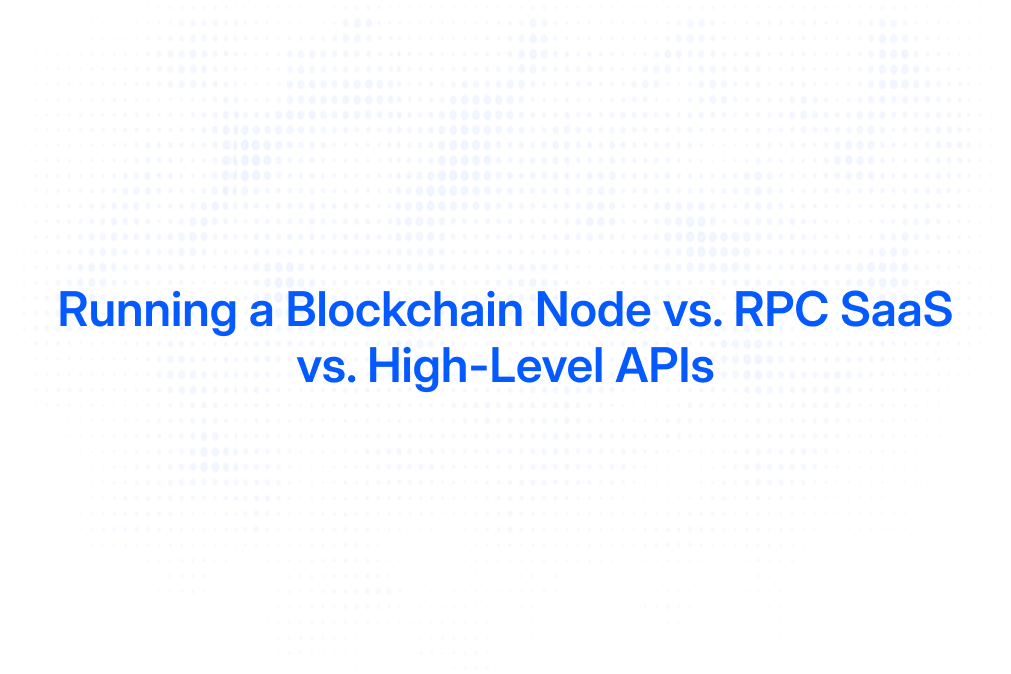Uniblock vs Helius: Which Is Better for Solana?
As the Solana ecosystem continues to grow rapidly, developers and projects face critical decisions regarding the infrastructure that powers their applications. One such decision is choosing the right RPC provider to ensure reliable, fast, and cost-effective access to the Solana blockchain. Two prominent contenders in this space are Uniblock and Helius. Both offer robust RPC solutions tailored for Solana, but which one truly stands out? This article dives deep into the features, performance, reliability, and cost considerations of Uniblock and Helius to help you make an informed choice.
Understanding the Role of RPC Providers in Solana Development
Before comparing Uniblock and Helius, it’s important to understand why RPC (Remote Procedure Call) providers are essential for Solana developers. RPC endpoints act as gateways that allow applications to interact with the blockchain — submitting transactions, querying data, and listening for events.
Given Solana’s high throughput and low-latency design, the quality of your RPC provider can significantly impact your app’s performance and user experience. Downtime, latency spikes, or high costs from a suboptimal provider can lead to transaction delays, failed requests, and ultimately user dissatisfaction.
Therefore, selecting an RPC provider that offers high reliability, redundancy, and cost efficiency is critical for scaling Solana applications effectively.
Uniblock: Multi-Provider RPC Routing for Enhanced Reliability
What Sets Uniblock Apart?
Uniblock distinguishes itself as a multi-provider RPC aggregator and router, designed to optimize Solana RPC calls by intelligently routing requests across multiple providers. This approach ensures that if one provider experiences downtime or latency issues, traffic is automatically rerouted to healthier endpoints without interrupting the user experience.
By leveraging multi-provider routing, Uniblock offers significant improvements in reliability and uptime, which are crucial for mission-critical Solana applications. This technology aligns with the broader trend in Web3 infrastructure where multi-RPC solutions outperform single providers by mitigating risk and reducing single points of failure.
Reliability and Failover
Uniblock’s auto-routing technology is built to minimize RPC downtime. It continuously monitors the health of connected providers and implements failover mechanisms to switch traffic seamlessly in case of outages. This ensures that Solana apps maintain consistent connectivity, even during provider-specific disruptions.
For developers, this means fewer failed transactions and smoother user interactions, which are vital for DeFi platforms, NFT marketplaces, and gaming applications on Solana.
Cost Optimization
Another advantage of Uniblock is its ability to optimize RPC costs. By distributing requests intelligently across providers based on pricing and performance, Uniblock can reduce overall RPC expenses by up to 40%. This is particularly beneficial for startups and projects with high API call volumes looking to scale without breaking their budgets.
Developer Experience and Integration
Uniblock offers straightforward integration with existing Solana applications, providing a unified endpoint that abstracts the complexity of managing multiple RPC providers. Developers can leverage Uniblock’s API orchestration to simplify infrastructure management, focusing more on building features rather than maintaining RPC connections.
Helius: A Specialized RPC Provider for Solana
Helius Overview
Helius is a Solana-focused RPC provider that emphasizes performance and developer-friendly tooling. It offers a suite of APIs tailored for Solana applications, including real-time data streaming, enhanced transaction indexing, and analytics capabilities that go beyond basic RPC functionality.
Helius is designed to provide fast and reliable access to Solana nodes, with a focus on delivering detailed blockchain data that can power rich user experiences.
Performance and Data Enrichment
One of Helius’ standout features is its enriched data APIs. These enable developers to access complex blockchain data structures, such as token metadata, NFT ownership histories, and transaction analytics, with minimal overhead.
For projects that require deep insights into Solana’s state or want to build advanced dashboards and analytics tools, Helius offers a compelling value proposition.
Reliability and Uptime
Helius maintains a robust infrastructure to ensure high availability and low latency. However, unlike Uniblock’s multi-provider routing, Helius primarily operates as a single-provider solution. While it invests heavily in redundancy and failover within its own network, it does not natively offer multi-provider failover capabilities.
This means that although Helius is reliable, it may not provide the same level of resilience against provider-specific outages that a multi-provider router like Uniblock can guarantee.
Developer Tools and Ecosystem Support
Helius provides extensive SDKs and developer tools tailored for Solana, making it easier for teams to integrate and build on top of its platform. Its focus on Solana-specific features and data enrichment is a strong advantage for projects that need specialized blockchain insights.
Comparing Uniblock and Helius: Key Factors for Solana Developers
1. Reliability and Uptime
Uniblock’s multi-provider RPC routing gives it a clear edge in reliability. By automatically switching between multiple providers, it minimizes downtime risks and ensures consistent access to Solana nodes. Helius, while reliable within its own infrastructure, lacks this multi-provider failover mechanism, which could be a concern for applications requiring near-100% uptime.
2. Performance and Latency
Both Uniblock and Helius offer low-latency RPC access optimized for Solana’s high-speed blockchain. However, Uniblock’s multi-region routing capabilities can reduce latency further by directing requests to the closest or fastest available endpoint. Helius provides fast access but without the dynamic routing benefits of a multi-provider setup.
3. Cost Efficiency
Uniblock’s intelligent routing across providers can lead to significant cost savings by leveraging cheaper RPC endpoints when available. This is especially useful for projects with high transaction volumes. Helius’ pricing model is competitive but may not offer the same level of cost optimization due to its single-provider nature.
4. Feature Set and Data Enrichment
Helius excels in providing enriched Solana blockchain data and advanced APIs that support analytics and real-time event streaming. This makes it an excellent choice for projects needing detailed blockchain insights. Uniblock focuses more on routing and reliability, offering a simpler but highly resilient RPC access layer.
5. Integration and Developer Experience
Both platforms offer developer-friendly tools and APIs. Uniblock’s unified endpoint simplifies multi-provider management, while Helius provides specialized SDKs for Solana-specific features. The choice depends on whether the priority is infrastructure resilience or advanced data capabilities.
Which RPC Provider Should You Choose for Your Solana Project?
The decision between Uniblock and Helius ultimately depends on your project’s priorities and requirements.
- Choose Uniblock if: You prioritize maximum uptime, reliability, and cost efficiency. If your Solana app demands continuous availability with minimal downtime risk, Uniblock’s multi-provider auto-routing is the safer bet. It’s especially suitable for DeFi platforms, NFT marketplaces, and gaming apps where user experience hinges on flawless blockchain connectivity.
- Choose Helius if: You need advanced Solana-specific data APIs and enriched blockchain insights. Helius is ideal for analytics-heavy projects, dashboards, or applications that require detailed transaction and token metadata. Its developer tools are tailored for deep Solana integration.
For many projects, combining the strengths of both platforms might even be a viable strategy — using Uniblock for core RPC reliability and Helius for specialized data queries.
The Future of Solana RPC Infrastructure
As Solana continues to scale, the infrastructure supporting it will evolve rapidly. Multi-provider RPC routing, like that offered by Uniblock, is becoming the new standard for ensuring reliability and reducing latency across distributed blockchain networks. Meanwhile, specialized providers like Helius will continue to push the envelope in data enrichment and developer tooling.
Developers should keep an eye on emerging trends such as multi-cloud RPC routing and API orchestration, which promise to further enhance performance and scalability. Integrating multiple providers and leveraging technologies like Google’s Multi-Cloud Proxy (MCP) can offer even greater redundancy and cost savings.
Conclusion
Uniblock and Helius each bring unique strengths to the Solana RPC provider landscape. Uniblock’s multi-provider routing delivers unmatched reliability and cost optimization, making it a robust choice for high-availability applications. Helius offers powerful Solana-specific APIs and enriched data, ideal for projects that require deep blockchain insights.
By carefully evaluating your project’s needs—whether it’s uptime, cost, or data richness—you can select the RPC provider that best supports your Solana development journey. Both Uniblock and Helius represent the forefront of Solana infrastructure innovation, empowering developers to build faster, smarter, and more resilient blockchain applications.
Ready to elevate your Solana project with unmatched reliability and seamless infrastructure management? Start building with Uniblock today and join over 2,000 developers who are already enjoying the benefits of our Web3 infrastructure orchestration platform. Experience the peace of mind that comes with auto-routed RPC, API, and webhook traffic, ensuring maximum uptime and cost savings. Say goodbye to vendor lock-in and scale your dApps, tooling, or analytics with confidence. With Uniblock, you can focus on innovation while we handle the complexities of decentralized infrastructure.
.svg)


.png)



